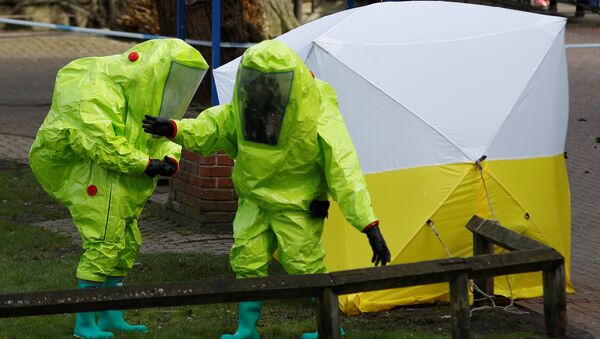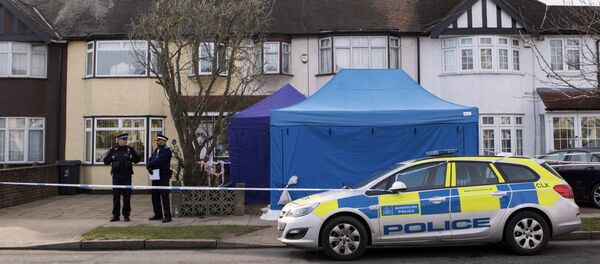"Why do you think the British refuse to give a [nerve agent] sample to Moscow? Because no matter how hard the specialists try, the manufacturing technology always differs a little. It's a kind of a 'handwriting sample.' It will immediately become clear that this is not a Russian technology," Rink said.
Rink added that the sample from Salisbury is like a "fingerprint" for a forensic expert.
"It could be easily determined that it [the poison] was not 'cooked' in Russia," he stressed.
According to the scientist, British chemical weapons experts had access to Novichok technology and could have used it to poison Skripal and his daughter.
READ MORE: 'Trying to Make Herself Look Good': Expert Explains May's Stance on Skripal Case
"It [the Novichok-type technology] is commonly available for professionals…Any pharmaceutical corporation, any chemical corporation is capable of manufacturing it in their laboratories," Rink said.
"It is absolutely certain that there are such specialists in the UK. I believe they could have applied the substance on Skripal or his daughter's belongings. Or on some objects in the cemetery. Naturally, there should have known that Skripal would visit the cemetery. It could have easily been done by the British themselves," he concluded.
The poisoning of former Russian spy Sergei Skripal was too unprofessional to have been carried out by alleged Russian agents, Leonid Rink said.
"Since all participants of this incident are alive, it is hard to imagine that the Russians are involved in this: such a blatant ignorance of alleged agents is just ridiculous and unacceptable. Even an unprofessional Russian agent would not use the one substance of Russian origin and with a Russian name. There are plenty of more appropriate substances. Firing at an unimportant target with a rocket and missing is the utmost stupidity," Rink said.
The developer of the chemical weapons added that Russia had no motive, since Skripal, who was part of a US-Russian spy swap in 2010, had no more important information to give to ether Russia or the United Kingdom.
"He was of no interest to Moscow. Secondly, the timing is extremely bad for Russia. A few days before the [presidential] election [held Sunday] and shortly before the FIFA World Cup," Rink concluded.
Former Russian intelligence officer Skripal and his daughter were found unconscious on a bench near a shopping center in the UK city of Salisbury on March 4. Subsequent investigation of the case revealed that the two were poisoned with a military-grade nerve agent believed to be developed in secrecy by the former Soviet Union.
Russia has demanded access to the case'a materials, including the nerve gas, allegedly used to poison Skripal, however, London has refused to do so according to Foreign Minister Sergei Lavrov.
UK Foreign Secretary Boris Johnson has claimed that there is evidence that Russia has been stockpiling the nerve gas, while Russian Foreign Ministry spokeswoman Maria Zakharova has said that the deadly substance may have originated from the Czech Republic, Slovakia, Sweden, the United Kingdom, or the United States.



